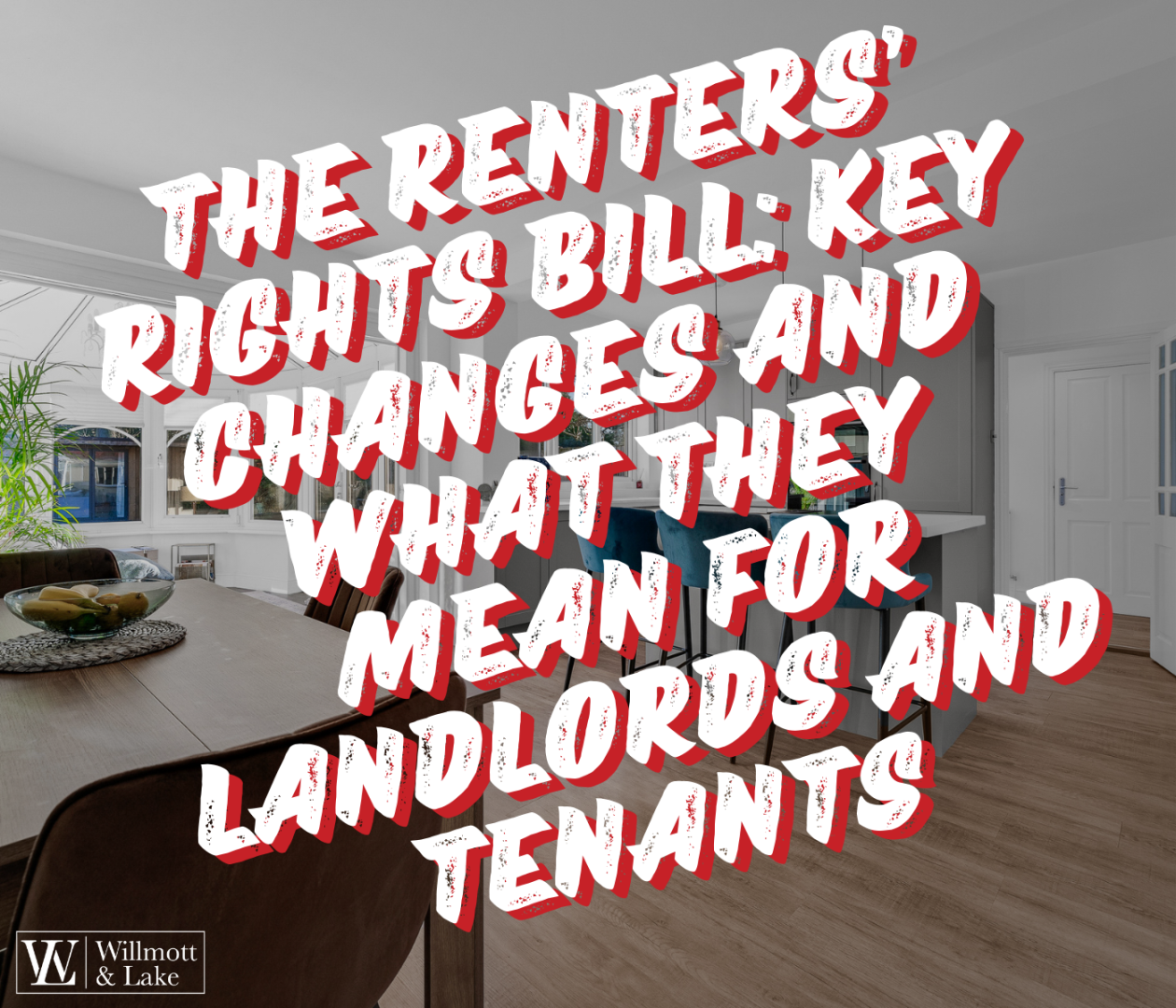The Renters’ Rights Bill: Key Changes and What They Mean for Landlords and Tenants
The Renters’ Rights Bill marks a major shift in the UK’s private rental sector, introducing reforms designed to increase tenant protections and transparency. Below, we outline the key changes introduced by the Bill and their implications for both landlords and tenants.
Abolition of Section 21 "No-Fault" Evictions
What This Means: Landlords will no longer be able to evict tenants without providing a valid reason.
Impact: While this strengthens tenant security, landlords will still be able to reclaim their properties under strengthened Section 8 eviction grounds. These include selling the property, moving back in, or tenant breaches of tenancy agreements.
Ban on Rent in Advance
What This Means: Landlords will be prohibited from requesting more than one month's rent upfront.
Impact: While this prevents excessive upfront costs for tenants, it may present challenges for landlords in assessing tenant risk—particularly for those without a guarantor or who previously relied on upfront rent payments.
Fixed-Term Tenancy Reform
What This Means: Fixed-term tenancies will be removed, with all tenancies becoming rolling periodic tenancies.
Impact: Tenants will gain greater flexibility, but landlords will need to adapt to ongoing tenancies with no fixed end dates, potentially making long-term planning more challenging.
Mandatory Ombudsman Scheme for Private Landlords
What This Means: All private landlords will be required to register with a government-backed ombudsman scheme.
Impact: This aims to create a clear dispute resolution process, giving tenants an avenue for complaints while ensuring landlords meet their obligations.
New Property Portal for Landlords and Tenants
What This Means: A digital property portal will be introduced where landlords must register properties and demonstrate compliance with legal standards.
Impact: This increases transparency and allows tenants to verify if a landlord is following regulations. It will also place additional administrative responsibilities on landlords.
Reforms to Rent Increases
What This Means: Limits will be placed on both the frequency and amount of rent increases.
Impact: Tenants will benefit from greater rent stability, while landlords will need to justify any increases and work within new restrictions.
Decent Homes Standard for the Private Rental Sector (PRS)
What This Means: The Decent Homes Standard, already applied to social housing, will now extend to private rentals.
Impact: Landlords must ensure their properties meet minimum quality standards, which could require upgrades and increased maintenance obligations.
Awaab’s Law: Tackling Damp and Mould
What This Means: Landlords will be legally required to fix damp and mould issues within set deadlines.
Impact: Ensures a higher standard of living for tenants while placing stricter responsibilities on landlords for maintaining property conditions.
Pet-Friendly Lets
What This Means: Landlords cannot unreasonably refuse tenant requests to keep pets.
Impact: While this grants tenants more flexibility, landlords can require tenants to obtain pet insurance to cover potential damages, ensuring protection for their property.
How Landlords Can Prepare
The Renters’ Rights Bill introduces several significant changes, making it essential for landlords to stay ahead of the new regulations. Here’s how you can prepare:
✔ Stay Informed – Keep updated on the latest developments to fully understand your rights and responsibilities.
✔ Review Tenancy Agreements – Ensure all current and future agreements comply with the new legal requirements.
✔ Upgrade Property Standards – Prepare for stricter property regulations by ensuring your rental meets safety and maintenance standards.
✔ Document Everything – Maintain records of tenant communications, maintenance, and inspections to demonstrate compliance.
✔ Seek Legal Advice – Consult a legal expert to understand how these changes will impact your rental business.
The Renters’ Rights Bill is set to reshape the private rental market, increasing tenant protections while adding new compliance requirements for landlords. Staying informed and proactive will be key to navigating these changes successfully.
Need guidance on how the new laws affect your rental property? Get in touch with us today!







Share this with
Email
Facebook
Messenger
Twitter
Pinterest
LinkedIn
Copy this link